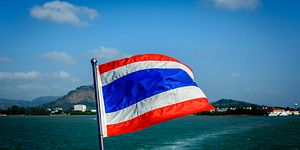On March 24, more than 40 million registered Thai voters are expected to go to the polls for the country’s first elections since 2011 and its first since the military takeover in 2014. Are these elections going to be free and fair?
Freedom, in the context of elections, pertains to the voters and candidates’ opportunity to participate in the election without coercion or restriction of any kind. Fairness, on the other hand, refers to impartiality in the application of the election law, constitutional provisions and other regulations. The upcoming elections face challenges on both grounds.
At the very best, certain developments — for example, cases against political parties — will one way or another affect the perception of free and fair political environment in the country regardless of the facts or evidence in the cases.
On February 27, the Constitutional Court ordered the dissolution of Thai Raksa Chart, a party allegedly linked to exiled former premier Thaksin Shinawatra, for hostility to the constitutional monarchy by nominating Princess Ubolratana Rajakanya as the party’s candidate for prime minister, which is considered a violation against the spirit of the constitution and the country’s long-standing tradition. Furthermore, the leader and members of a new party, Future Forward, were also charged under the Computer Crime Act. If found guilty, they could face a fine up to 100,000 Thai baht ($3,157) and/or a jail term up to five years.
Questions have been raised as well about the fairness of election laws and regulations, and of relevant constitutional provisions. For example, the current constitution mandates both the upper and lower house of parliament to vote for prime minister, and not just the lower house as commonly practiced in many parliamentary democracies. The 250-member upper house — the Senate — will be chosen entirely by a selection committee handpicked by those currently in power.
The selection process allows incumbent Deputy Prime Minister Prawit Wongsuwan to be appointed as chair of the committee while the prime minister himself, Prayut Chan-o-cha, will have the final say on who would be in the list. As Prayut himself is also a candidate for prime minister, having been nominated by the new pro-current government Palang Pracharath Party, the expectation is that his Senate appointees will vote for him as a block, giving him a built-in advantage over other candidates.
The composition of the 500-seat lower house — the House of Representatives — will be filled out via a complicated mixed-member proportional (MMP) electoral system. Under this system, 350 members will be elected in single-member constituencies while the remaining 150 will come from party-lists. Unlike the party-list system of proportional representation, the new MMP voting system makes every vote count for both candidates and the parties. Many critics claim that this could lead to inefficiency or political gridlock as parties will be forced to rule through coalitions. The complexity of the new system could also cause more confusion among voters.
It is also interesting to note that the appointed first-term Senate will outlive the lower house by one year, therefore giving the body influence in the next government (both the government and the House of Representatives have a term of office of 4 years). One of the Senate’s tasks is to make sure that any new administration follows the 20-year national strategies put in place by the current government.
Furthermore, Article 44 of the Interim Constitution — giving the executive branch special powers and passed into the current constitution in a special provision — will still be in force until the assumption of the new government. On March 20 last year, the government used the special power under Article 44 to remove a member of the Election Commission from the office without any explanation.
This means that the military government will still have absolute power during the election until the formation of the new government. It may become crucial in the 60-day interregnum between the election and the Election Commission’s announcement of official results. It is also important to note that all past and future orders and announcements of the current government remain in force until amendments or cancellations by the new government.
Based on the above, the question as to whether the upcoming elections will be free and fair appears to have some merit. This leads to a corollary question for us among the liberal and democratic political parties: “If the elections will not be free and fair, what are we going to do about it?”
This question has been raised so many times before in the context of countries-in-transition — from the Philippines in 1986 to Malaysia in 2018. Time and again, it has been proven that we should make use of every democratic opening — no matter how limited — to push toward a more democratic direction. The upcoming Thai elections should be seen in this light. It may not tick all the boxes of what we consider to be free and fair, but it is a step forward for the country and its people.
In these elections, there will be an estimated 7 million first-time voters. If their presence on social media would actually translate to turning up at the polling stations on Election Day, these elections may just surprise us.
Kiat Sittheeamorn is a party-list candidate for House of Representatives under the Democrat Party of Thailand. He is also a Vice President of Liberal International and former Secretary General of the Council of Asian Liberals and Democrats.

































